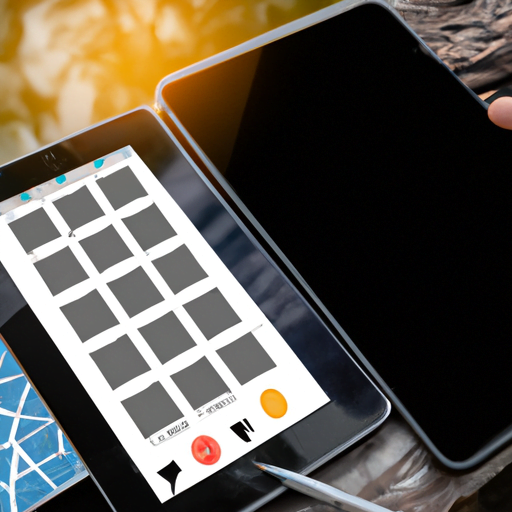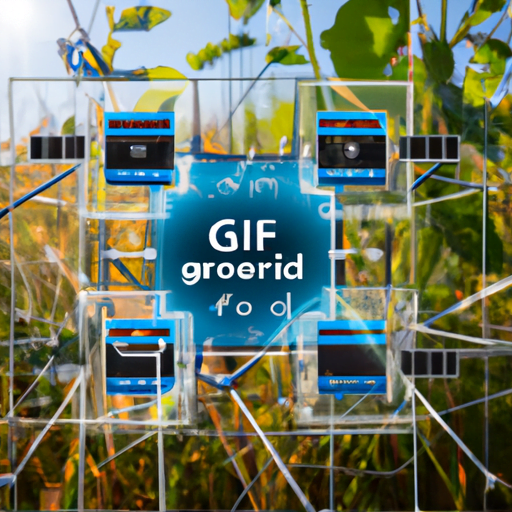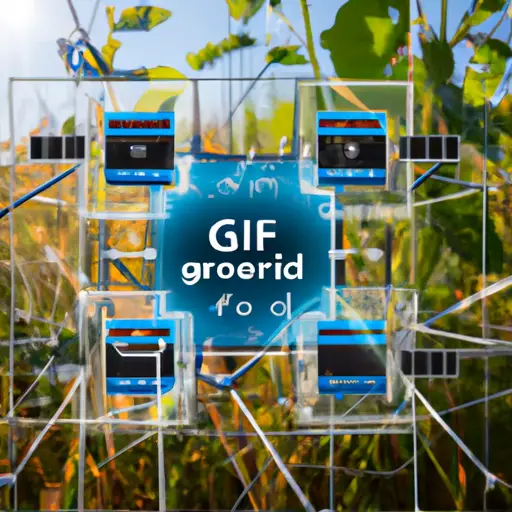So, have you ever thought about living off the grid? Like, completely independent from the traditional power grid? It’s an interesting idea, right? Well, if you have, then you’ve probably come across the term “off-grid power system”. But what exactly does that mean? Don’t worry, I got you covered.
An off-grid power system is basically a system that allows you to generate your own electricity without being connected to the main power grid. It’s like having your own mini power station at home. Pretty cool, huh? These systems typically consist of alternative sources of energy, such as solar panels, wind turbines, or even hydropower, which produce electricity that can be stored in batteries for later use.
Now, let me tell you, these off-grid power systems can be a game-changer for those who choose to live off the grid. Imagine not having to rely on the utility company for your electricity needs. You have the freedom to generate your own clean and renewable energy, and have power even in remote areas where access to the grid is limited or non-existent. Trust me, there’s a lot more to learn about off-grid power systems, so stick around and I’ll fill you in on all the details in the article.

Understanding Off-Grid Power Systems
Off-Grid Power Systems Explained
In today’s modern world, where electricity is a crucial part of our daily lives, the concept of living off-grid may seem unconventional. However, there is a growing movement of individuals and communities who choose to disconnect from the traditional power grid and rely on their own self-sustaining energy sources. Off-grid power systems, also known as standalone power systems, are designed to generate and store electricity independently, without being connected to the utility grid.
Advantages of Off-Grid Power Systems
There are several advantages to embracing off-grid power systems. Firstly, it provides energy independence. With an off-grid system, you are not reliant on the grid and its fluctuations, power outages, or rising electricity prices. Instead, you have control over your own energy production and consumption.
Secondly, off-grid power systems are environmentally friendly. By relying on renewable energy sources such as solar, wind, hydro, and biomass, you can significantly reduce your carbon footprint and contribute to a more sustainable future.
Thirdly, off-grid living promotes a simpler and more self-sufficient lifestyle. It encourages individuals to be conscious of their energy consumption, leading to a more mindful approach towards electricity usage.
Components of an Off-Grid Power System
To understand how off-grid power systems work, it’s essential to familiarize yourself with their components. The key elements of an off-grid system include:
Solar Panels: These photovoltaic panels are the main source of electricity generation in off-grid systems. They convert sunlight into direct current (DC) electricity, which is then stored in batteries for later use.
Battery Bank: The battery bank is responsible for storing the excess electricity generated by the solar panels. It ensures a continuous power supply during times when the solar panels are not producing electricity, such as at night or during cloudy days.
Charge Controller: The charge controller regulates the flow of electricity from the solar panels to the battery bank. It prevents overcharging and extends the lifespan of the batteries.
Inverter: The inverter converts the DC electricity stored in the batteries into alternating current (AC) electricity, which is used to power household appliances and electrical devices.
Solar Power in Off-Grid Systems
Solar power is one of the most common and reliable sources of energy for off-grid systems. It harnesses the energy from sunlight and converts it into electricity through the use of solar panels. Solar panels are typically installed on rooftops or in open areas where they can receive maximum sunlight exposure.
During the day, when the sun is shining, the solar panels generate electricity, which is either consumed immediately or stored in the battery bank for later use. The stored electricity can be used during the night or on cloudy days when the solar panels are not producing as much electricity.
Wind Power in Off-Grid Systems
Wind power is another renewable energy source that can be harnessed in off-grid systems. Wind turbines are used to convert the kinetic energy of the wind into electricity. The rotating blades of the turbine spin a generator, which produces electricity.
Wind power is ideal for off-grid systems in areas with consistent wind flow. It complements solar power by providing electricity during periods of low solar generation, such as at night or during the winter months. However, it is important to note that wind power requires careful planning and design to ensure optimal performance and efficiency.
Hydro Power in Off-Grid Systems
Hydro power utilizes the energy of flowing or falling water to generate electricity. In off-grid systems, small-scale hydropower systems can be implemented in suitable locations where there is access to a water source, such as a river or stream. The power of the flowing water turns a turbine, which is connected to a generator, producing electricity.
Hydro power systems are highly reliable and can provide a consistent source of electricity throughout the year. However, they require careful site selection and engineering to ensure the availability of a constant water supply and sufficient flow rate.
Biomass Power in Off-Grid Systems
Biomass power involves the conversion of organic matter, such as wood pellets, agricultural waste, or animal manure, into usable energy. This is typically achieved through combustion, where the biomass is burned to produce heat and steam, which in turn drives a generator to produce electricity.
Biomass power is versatile and can be used in off-grid systems to supplement other renewable energy sources. It is particularly useful in remote areas where access to other energy sources may be limited. However, it is important to ensure sustainable biomass sourcing and proper disposal of ash and emissions to minimize environmental impact.
Choosing the Right Off-Grid Power System
When deciding on the right off-grid power system for your needs, several factors need to be considered. These include:
Energy requirements: Assess your energy needs by considering the number of appliances and devices you use regularly. This will help you determine the capacity of your off-grid system, including the size of the solar panels, battery bank, inverter, and other components.
Location: Consider your location and the availability of renewable energy sources such as sunlight, wind, water, and biomass. Different regions have varying potential for each energy source, so it is important to choose a system that aligns with your location’s resources.
Budget: Determine your budget for installing and maintaining an off-grid system. The costs will include not only the initial investment but also ongoing maintenance and replacement of components over time.
Installation and Maintenance of Off-Grid Power Systems
Installing an off-grid power system requires careful planning, design, and professional assistance. It is important to consult with experts who can assess your energy needs, provide guidance on system sizing and equipment selection, and ensure proper installation.
Maintenance of off-grid power systems is essential to ensure their continued efficiency and longevity. Regular inspections of the solar panels, batteries, charge controllers, and inverters are necessary to identify any issues and address them promptly. Additionally, it is important to maintain cleanliness and prevent any shading or obstructions that could reduce the efficiency of the solar panels or obstruct the wind turbines.
Conclusion
Off-grid power systems offer a sustainable and independent approach to meet your energy needs. By harnessing the power of renewable energy sources such as solar, wind, hydro, and biomass, you can reduce your reliance on the traditional power grid and contribute to a greener future. Understanding the components, advantages, and selection criteria for off-grid systems is essential to make informed decisions and embrace a self-sufficient lifestyle. So, whether you choose solar, wind, hydro, biomass, or a combination of these, off-grid power systems provide a viable alternative to conventional energy sources. Embrace the opportunity to take control of your energy consumption and contribute to a more sustainable world.





